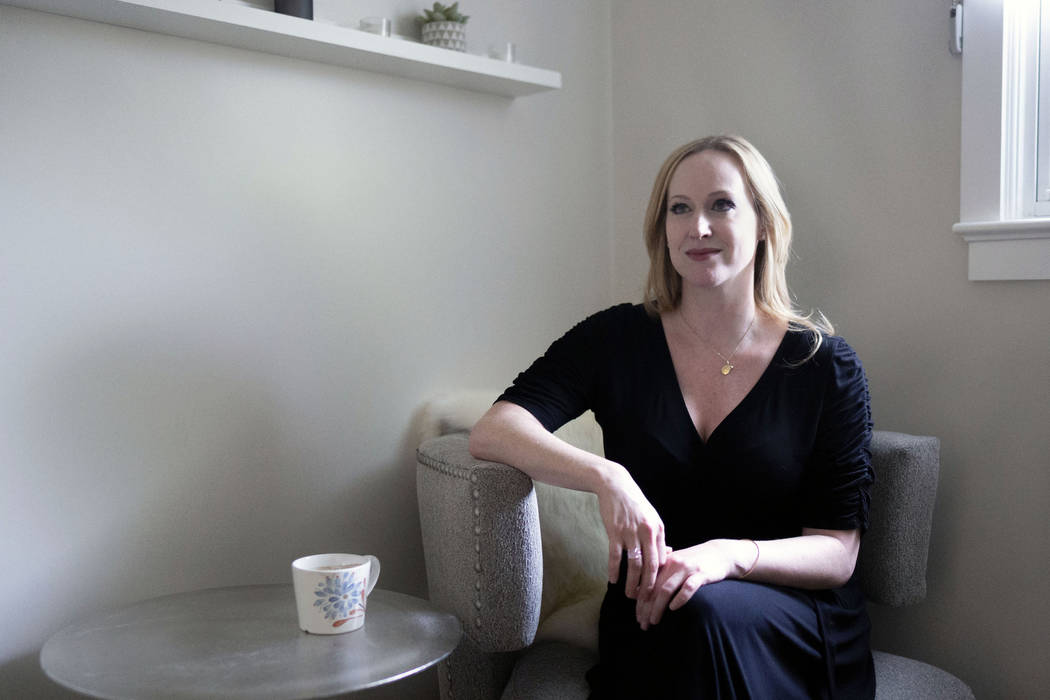Changing personal stories can help women excel

Everyone has a story, and Jeanette Schneider’s begins with growing up poor in a violent Florida neighborhood where women were trafficked and a home life centered around an emotionally distant mother with substance-abuse issues.
Without realizing it, Schneider came to accept that story. She came to believe its themes — that she was unlovable, that men were better than women, that the world was terrifying — which returned throughout her life to damage her relationships and her view of herself.
Call it the folklore of one’s own life, made up of myths, messages and mistaken beliefs that can lead women to act, think and behave in negative ways. In her book, “Lore: Harnessing Your Past to Create Your Future” (Balboa Press, $35.95), Schneider explores the negative lore that women might believe and offers exercises to help them rewrite their own folklore and create a new way to view the world.
A rough start
Schneider worked in finance for 23 years — it’s what brought her to Las Vegas — and having her daughter, Olivia, now 8, underscored the importance of the lore that girls receive and women believe.
Along with substance-abuse problems, Schneider’s mother suffered from mental health issues, and her minister father struggled to hold the family together. That was made particularly difficult by their neighborhood , a haven for prostitution and human trafficking.
“Our neighbor across the street was a trafficker. He trafficked in women and would beat them up,” Schneider says. “I saw women beaten all the time. My next door neighbor would (beat) his wife in the front yard. Occasionally there were gunshots.”
When Schneider was 10, it was discovered that a neighbor had killed a woman and hidden her body in a freezer for three years. Schneider’s memories of police officers questioning her family in an attempt to identify the woman still trigger physical reactions, as does the detective’s name, and recollections of how carpet remnants discarded by her family were used by the killer to shroud his victim.
Only in writing the book, and in an exercise in which she wrote a love letter to her younger self, did Schneider realize how experiences of her youth left her with myths that became part of her own folklore.
“I didn’t realize my issue was security,” she says. “I’m hypervigilant, very aware of my surroundings. I didn’t realize until I went back to look that I have fears about security, and it’s because of that.
“I did not believe I was lovable,” she said. No one had ever said, “ ‘You’re unlovable,’ but I think my mother endured so much abuse in her family that the only way she knew how to parent was through shame and manipulation.”
That, Schneider now realizes, translated into “bad relationships in my 20s.”
Also part of the folklore she unknowingly accepted was that “women are inferior to men … woment were owned by men.”
Sifting through the messages
But there was good lore, too, from her grandfather, a minister who had always professed that “elders reign supreme.” During a discussion before he died, “his message to me was, ‘They’re just men. Find your own way.’ ”
She also received positive reinforcement from her grandmother. “Her message to me was, ‘Don’t worry about the big things. The big things take care of themselves. Take care of the little things. Love each other every day.’ ”
Even a client who died at 91 offered affirming advice. “He had acquired all of this wealth. He said, ‘It’s the people who surround your bed when you’re dying that you need to love when you’re living. Stop chasing things.’ ”
Schneider believes “choosing good lore is a conscious decision.”
Bad lore can come from advertisements, media, even family members and loved ones. “It’s amazing how we accept so much messaging that comes from outside of us, as well as (from) our own family,” Schneider says.
“I feel when you’re born you’re perfect. Everything after that is information. So you have to figure out what information is right and what connects to you and what’s helpful.”
The power to change
Schneider considers her book as a beginning workshop. Readers participate in exercises to help them identify and eliminate bad messaging from their lives. Readers also can learn about the experiences of notable women who have confronted their own lore.
Schneider hadn’t planned on sharing her own story, but was challenged to do so by one of her contributors. She found that writing a letter to her younger self was as revelatory for her as she hopes it will be for others.
“I have an unfortunate beginning, and I think there was a lot of shame there that I had to work through. The moment I wrote, ‘You will feel yourself unlovable,’ just the tears (flowed). I didn’t realize that about myself.”
“I think it’s so important that we are aware of our bad lore as we are getting rid of it,” Schneider says, in large part because adults may impart negative messages to their children without realizing it.
Schneider now is acutely aware of the folklore her daughter is receiving.
“I’m going to color her worldview.”
Contact John Przybys at jprzybys@reviewjournal.com or 702-383-0280. Follow @JJPrzybys on Twitter.